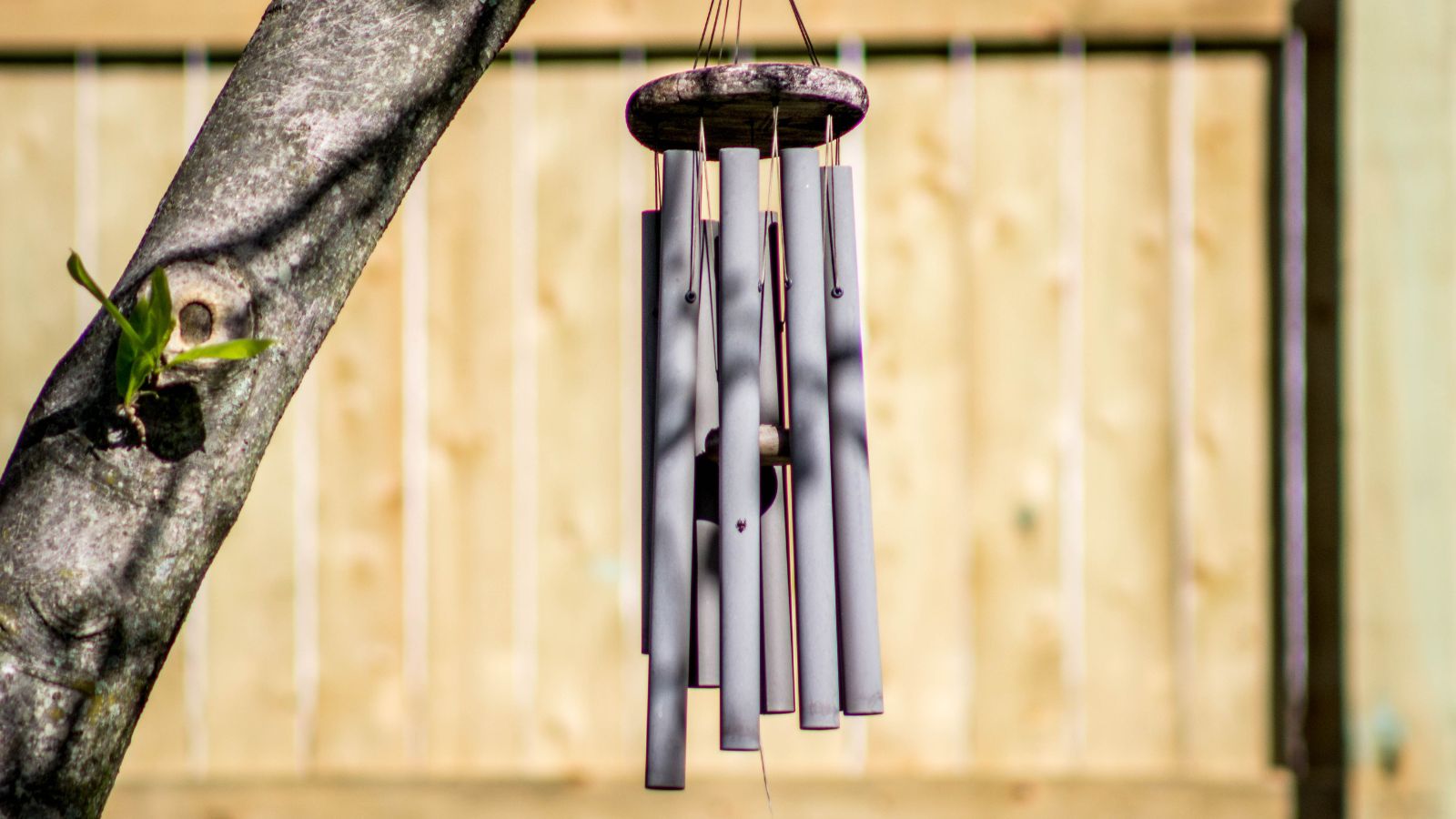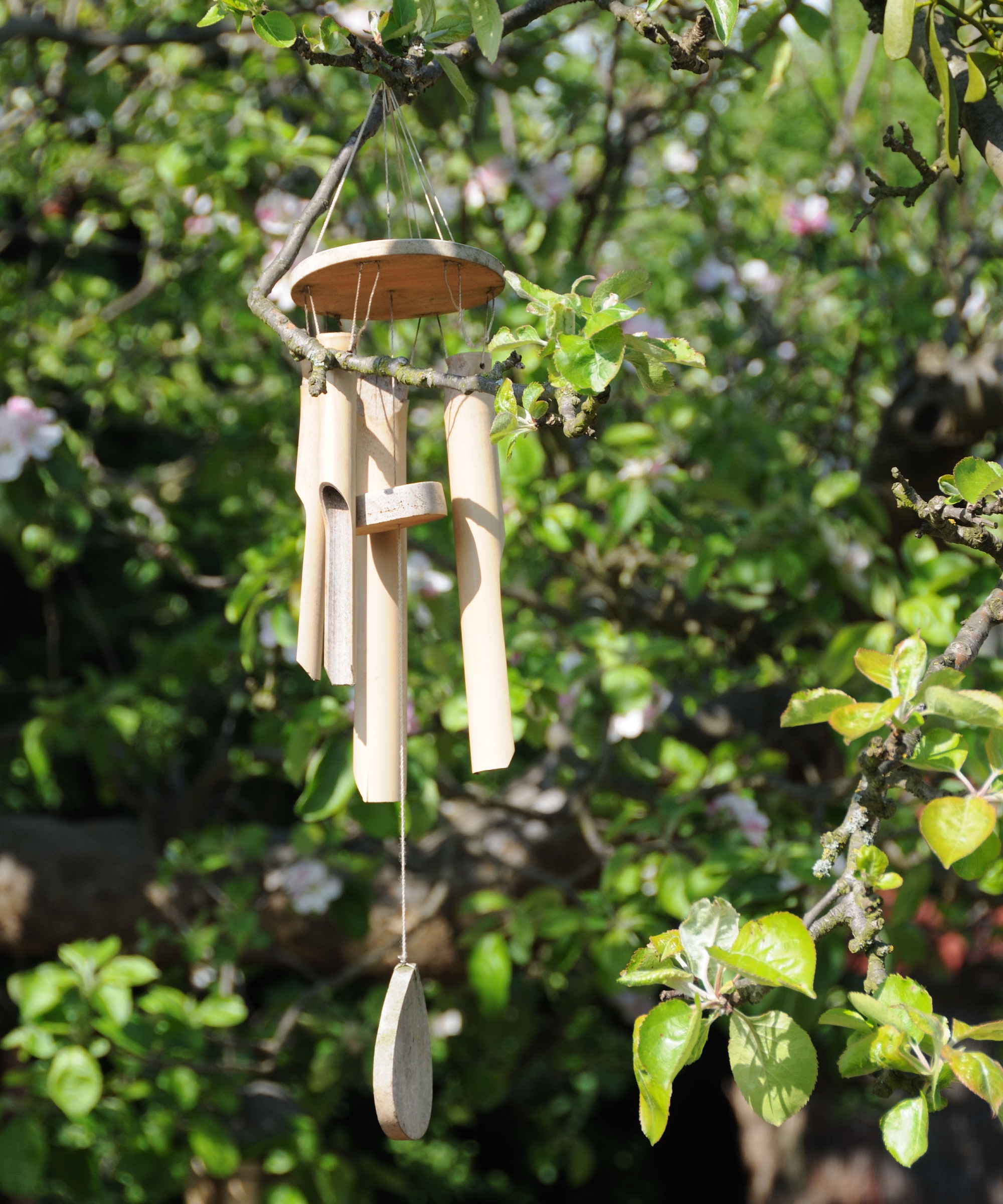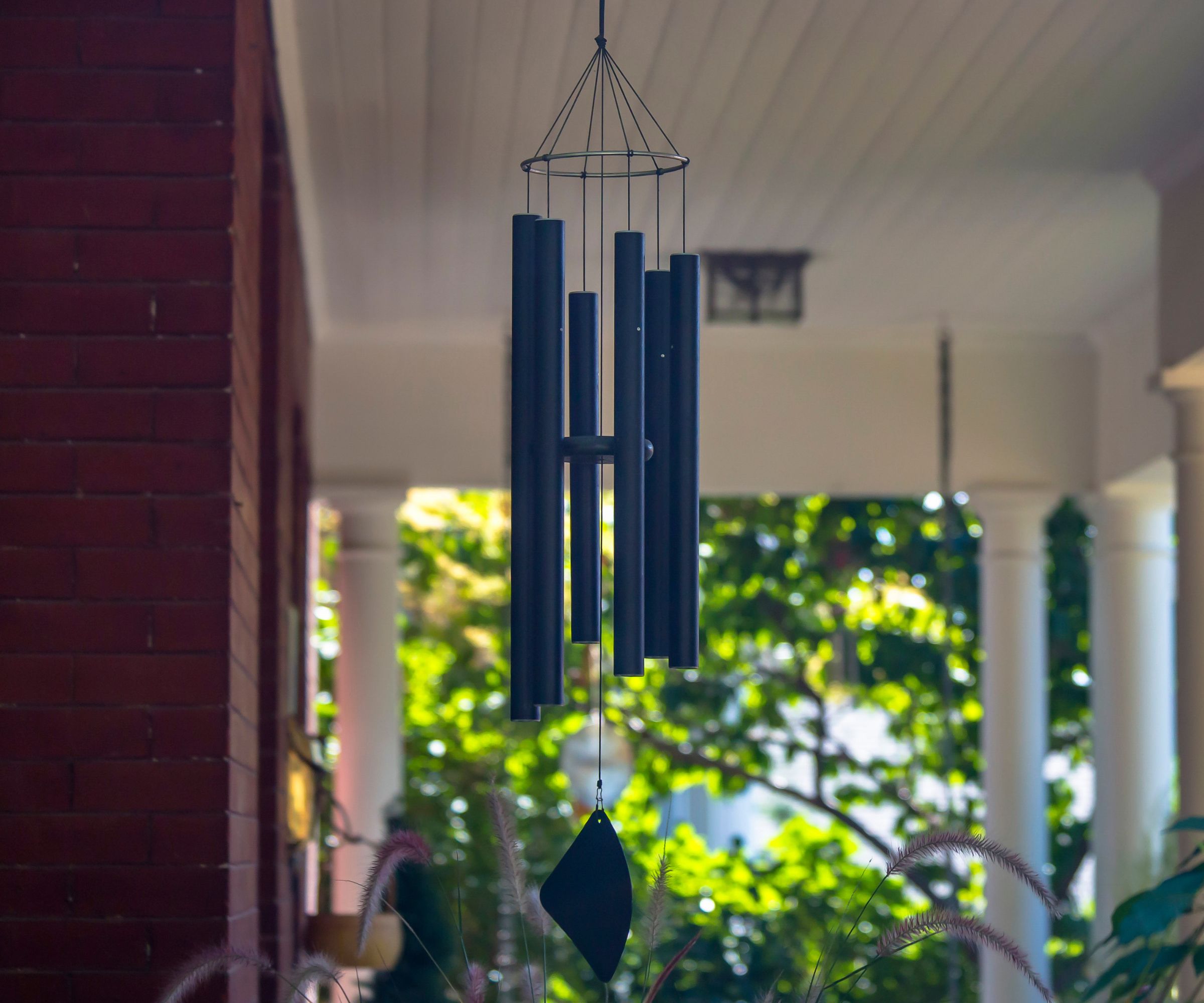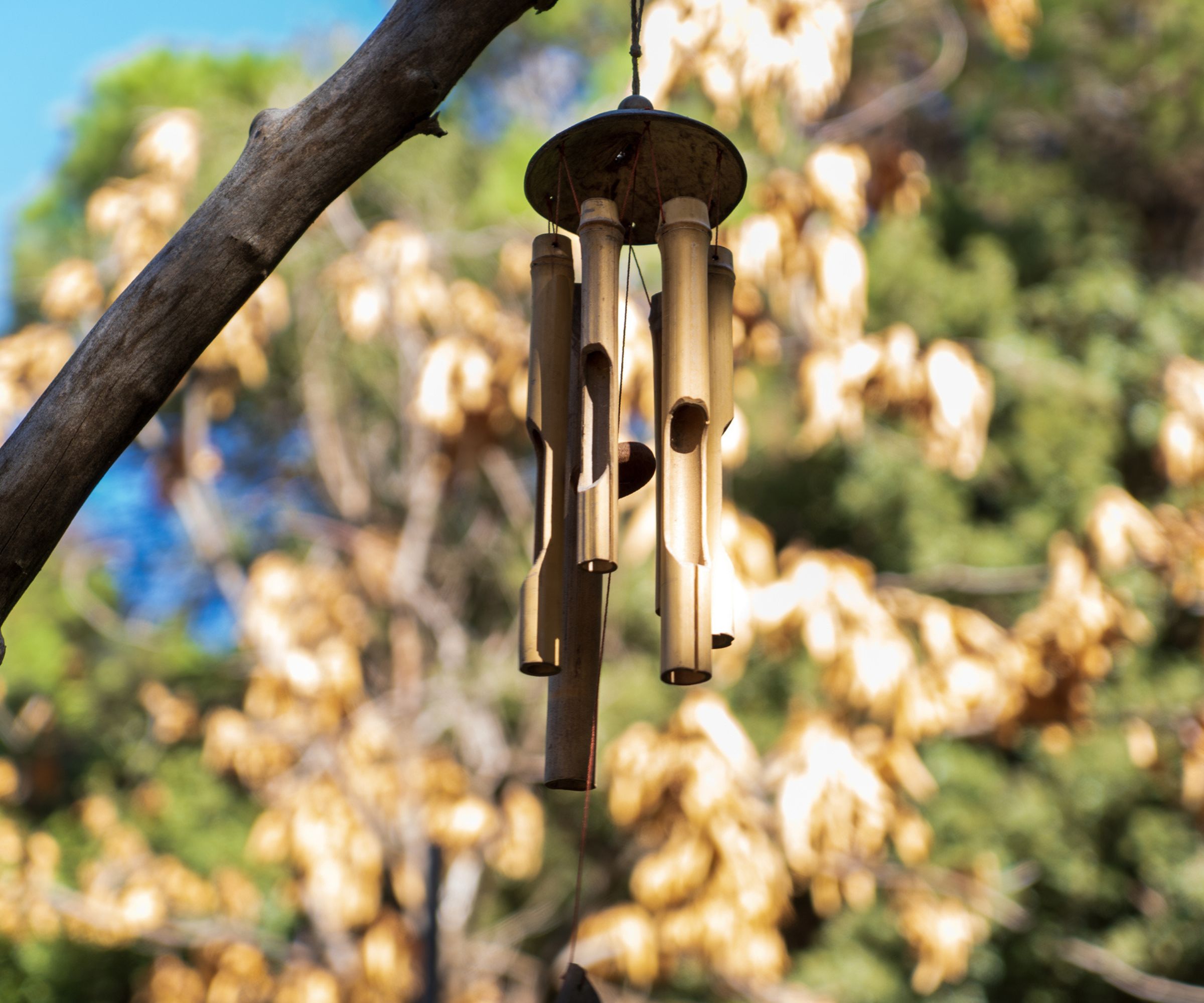
What's relaxing for you in your backyard might not always be enjoyed by your neighbors. Some sounds could be a major irritant for them, and wind chimes are one of the worst culprits.
Wind chimes can be a lovely way of introducing relaxing sound into your yard. However, when used incorrectly they have the potential to endlessly annoy your neighbors, causing a low-level irritant that's just as antisocial as a leaf blower or lawn mower.
I spoke to a gardening expert about the problems with wind chimes, potential legal issues, and how to make your wind chimes a little quieter.
Are windchimes antisocial?

Wind chimes can be very antisocial. They split opinions, however. Gardener and nursery owner Tammy Sons has some in her garden shop and says that they're controversial among her customers.
Tammy says 'Some people stop in our garden shop and love the noise, but many people will say they sound beautiful, but when the wind blows you cannot hear anyone talking for them.'
The problem with wind chimes is that they can't be switched on and off. They play whenever the wind blows, which happens randomly every few hours every day. They are louder or quieter depending on the force of the wind, and this randomness is part of the annoyance for nearby neighbors. With wind chimes, there's no respite - just constant, unpredictable low-level noise.
Tammy says they're even controversial in her own family. 'My husband hates our wind chimes. I have them all over our back porch hanging.'
In short, placed too near to a house or a neighbor's yard, wind chimes can be very antisocial. They can disrupt people trying to enjoy a quiet moment in their backyard, and in the worst cases, disrupt people's sleep.
What about the law?

Because they're so quiet, windchimes often aren't subject to nuisance laws, but they can be. For example, the noise limit in Fort Worth, Texas is 70db at the property line. Most wind chimes will never break this limit, because they're so small and relatively quiet.
However, not all noise restrictions need a decibel level. Staying with our example of Fort Worth, their noise ordinance states that 'Noise ordinance does not require a decibel level for enforcement... no person shall make, cause, suffer, allow or permit unreasonable noise in such a manner or with such volume that it disturbs a reasonable person of ordinary sensibilities.'
This means that if wind chimes are close to a neighbor's yard, they can be a nuisance. If the chimes are constantly tickling every hour of the day, it's no different from constant music, and it could be classed as a nuisance.
On top of that, some HOAs ban wind chimes outright for the sake of community cohesion. Many people dislike the sound of wind chimes, so many developments won't let you hang them up, or stipulate that they have to be at the bottom of the yard away from neighboring homes.
What are the benefits of windchimes?

With all of the above in mind, it seems strange that anyone would bother. However, the right set of wind chimes can be incredibly relaxing. They provide beautiful, low-level sound that can be gentle white noise for reading or dozing outdoors.
On top of that, they can be the perfect finishing touch to a space. Wind chimes can add interest to outdoor spaces, working as part of your backyard decor.
They can also be effective for animal control. Many bird species that can damage trees or eat your seeds don't like the sound of wind chimes. they can be an effective way of deterring birds like pigeons from your yard.
These quintessential wind chimes go a step further. Each note of the chimes is used in Pachebel's Canon, so it also makes a great gift for newlyweds.
Bamboo wind chimes like this made deep, calming tones which many people find less strident than metal or glass wind chimes.
More bohemian backyard would benefit from this design. The 'chimes' are pieces of sea glass fixed to driftwood, so it's also a great choice for coastal backyard.
What are the drawbacks of windchimes?

Wind chimes have several drawbacks. On top of the noise we've discussed, they can be tricky to maintain. Without proper wood treatment, wooden chimes can start to rot or develop algae. Most metal wind chimes are made of aluminum, so they won't rust, but cheap steel wind chimes will rust. The strings which hold them up are pretty thin and fray after a couple of years.
They also tend to wrap around themselves, which stops you from getting the full effect. Even if you like the sound of wind chimes, this can be irritating, as it often means the chimes can only sound one or two notes. This can quickly become irritating.
This is also finicky to fix because you need to detangle the fine strings on the chimes. On top of that, there's no permanent fix; you can detangle the whole set only to find them tangled up again five minutes later.
How can I make wind chimes quieter?
If you want wind chimes but don't want them to annoy the neighbors, you can dampen the sound.
The easiest way to do this is to place your wind chimes as far away from your neighbor's yard and house as possible. It can be a great jumping-off point for another design project - you could make a reading nook at the bottom of the garden where you can enjoy the sounds of the chimes without bothering the neighbors.
You can also try some easy DIY. All you need to do is stuff the insides of the wind chimes with some cotton batting. This will soften the sound so that it doesn't carry as far.
The issue with this trick is that it won't work for larger windchimes, such as those made from bamboo. In this case, you can glue some felt or bubble wrap inside the chime to dull the sound a little.
FAQs
IS it okay to leave wind chimes out in the rain?
Wind chimes can get wet, but it's best to use aluminum windchimes so that they don't corrode.
There are lots of ways to fall out with the neighbors, so it's always worth knowing your rights. Whether it's knowing who owns the fence, or working out how far from a property line you can build a gazebo, it always pay off to know local law.







